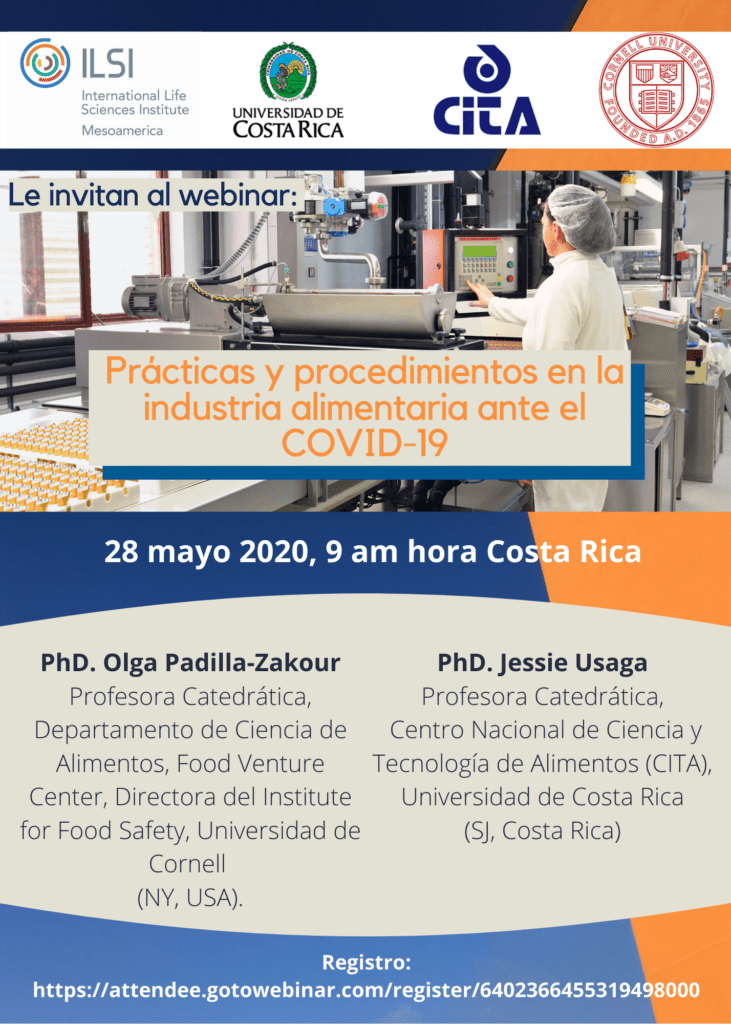Webinar: Practices and procedures in the food industry before COVID-19
San José, Costa Rica
May 28, 2020
9:00 am – 10:30 am
Online
Coronaviruses are an extensive family of viruses that can cause disease in both animals and humans. In humans, several coronaviruses are known to cause respiratory infections that can range from the common cold to more serious illnesses such as Middle East respiratory syndrome (MERS) and severe acute respiratory syndrome (SARS). (CCSS, 2020).
Food companies must apply food safety management systems that follow the principles of hazard analysis at critical control points in order to manage risks that may affect food safety and to avoid contamination. These food management systems are based on prerequisite programs that cover good hygiene practices; cleaning and sanitation; the delimitation of food processing areas; control of suppliers; storage, distribution and transport, personal hygiene and fitness for work; that is, the set of basic conditions and activities necessary to maintain hygiene in places where food products are made. (WHO, 2020)
In an effort to provide scientific information about the issues that concern us and in the framework of the COVID19 pandemic, ILSI Mesoamerica through its Risk Analysis and Toxicology Committee is organizing a series of webinars. This first event aims to:
 Cover the most frequent doubts about how the pandemic impacts the operating procedures of the food industry, in addition to providing practical examples of strategies implemented by the Costa Rican food industry.
Cover the most frequent doubts about how the pandemic impacts the operating procedures of the food industry, in addition to providing practical examples of strategies implemented by the Costa Rican food industry.
Speakers:
PhD. Olga Padilla-Zakour
Professor of the Department of Food Science, Food Venture Center, Director of the Institute for Food Safety, Cornell University. New York, USA.
PhD. Jessie Usaga
Professor, National Center for Food Science and Technology (CITA), University of Costa Rica. San Jose, Costa Rica.
The Webinar had a participation of 447 people, from various countries broken down as follows:

The full video in Spanish of the webinar can be seen here.